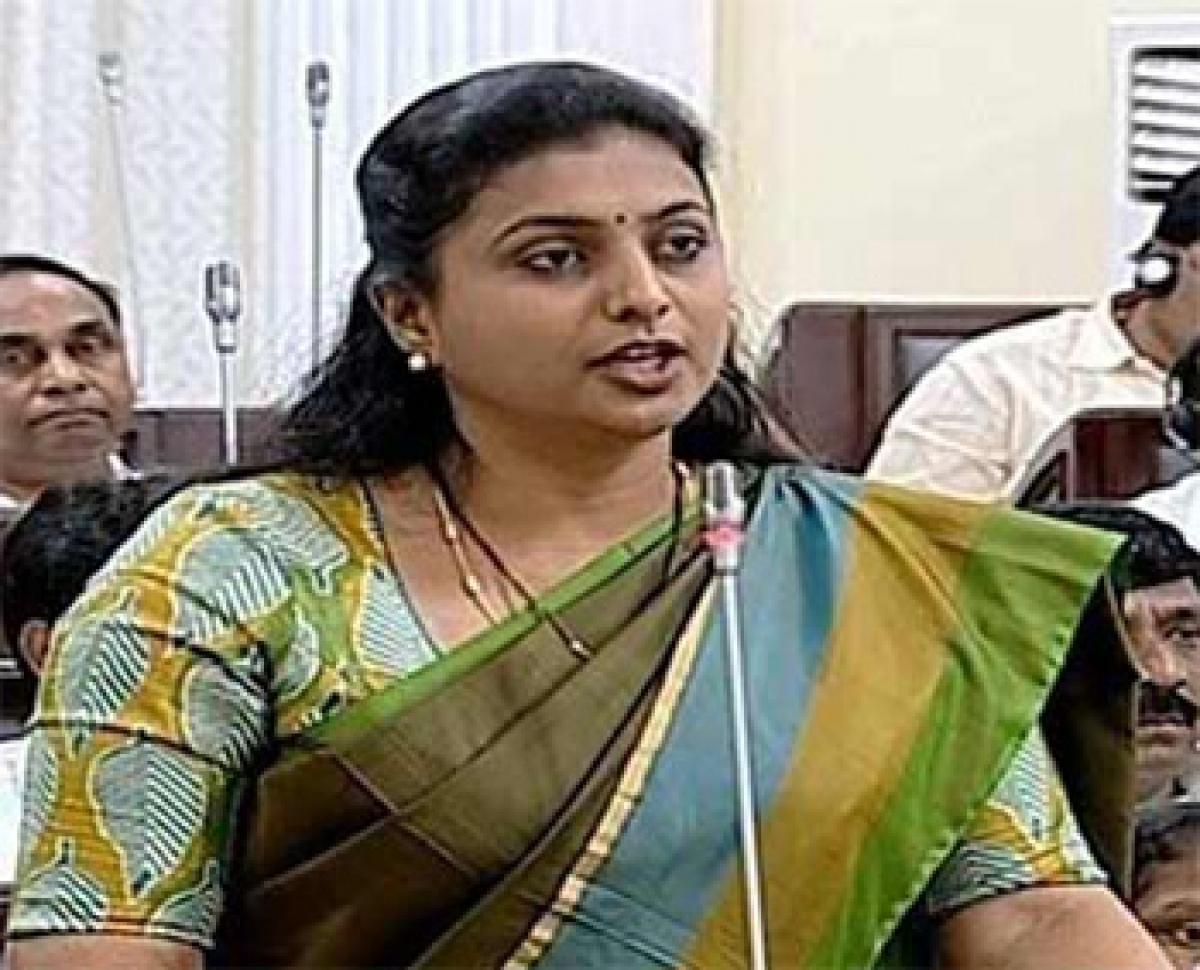Live
- Prez, PM to address special event to mark Constitution Day
- I owe every film of mine to Vijay Sethupathi: Eashvar Karthic
- Achoo! City faces spike in flu, cold, cough cases
- CPM demands TTD to allocate Rs 100 cr every year for Tirupati development
- Oppn pushes for debate on Adani issue, Manipur
- Guv invites Soren to form govt
- Mahayuti allies go into huddle to pick Maha CM
- Rachakonda police issues prohibitory orders in view of TGPSC tests
- Minister urged to revive defunct SKIAD institute
- SBI rescues sr citizen from `46L cyber fraud
Just In

The High Court’s interim orders on the case related to the suspension of YSR Congress member RK Roja raise certain pertinent questions over the delicate relationship between legislature and judiciary. The final judgment may have far reaching implications for the functioning of parliamentary democracy and the verdict will be a notable feature of Indian jurisprudence.
The High Court’s interim orders on the case related to the suspension of YSR Congress member RK Roja raise certain pertinent questions over the delicate relationship between legislature and judiciary. The final judgment may have far reaching implications for the functioning of parliamentary democracy and the verdict will be a notable feature of Indian jurisprudence. The Article 212 in The Constitution of India says:
Courts not to inquire into proceedings of the Legislature (1) The validity of any proceedings in the Legislature of a State shall not be called in question on the ground of any alleged irregularity of procedure
(2) No officer or member of the Legislature of a State in whom powers are vested by or under this Constitution for regulating procedure or the conduct of business, or for maintaining order, in the Legislature shall be subject to the jurisdiction of any court in respect of the exercise by him of those powers
The suspension of Roja is therefore defended on the ground that the decision of the house to regulate the behaviour of a member to maintain order in the House is solely under the purview of the legislature itself. The judiciary has no power to review it.
But, the High Court has not questioned the powers of legislature under Article 212 of the Constitution of India. It only raises questions over the way the Rule 340 (2) of the Assembly rules was applied in regard to the case in question. The Rule 340 (2) of Rules of Procedure and Conduct of Business in The Andhra Pradesh Legislative Assembly says that ‘…the member be suspended from the service of the House for a period not exceeding the remainder of the session…’ But the member was suspended for a year.
The High Court orders stated , “…the court came to the prima facie conclusion that motion carried out was contrary to the Rule 340 of the Rules of the House “. The court order further says that it has to consider the ‘balance of the convenience’ in the instant case. The ‘balance of convenience’ in legal terminology refers to ‘The question is to balance the relief given to the plaintiff against the injury that will be done to the defendant.’
Thus, the High Court orders are perfectly right as the court tries to balance between the entitlement of an elected member of the Assembly and the upholding of Rules of the House in regard to maintenance of order in the house. The court was of the opinion that the court can review the motion passed by the Legislative Assembly suspending the member on the limited grounds available to it and subject to Article 212 of the Constitution.
The court through this order has not endorsed the conduct of the suspended member. The court has not even questioned the authority of the Speaker to take action against the erring member. But, the court has certainly questioned the legality of the suspension. Thus legislative powers are not absolute. The Constitution is supreme. The Judiciary is the final arbitrator on the question of constitutionality.

© 2024 Hyderabad Media House Limited/The Hans India. All rights reserved. Powered by hocalwire.com







